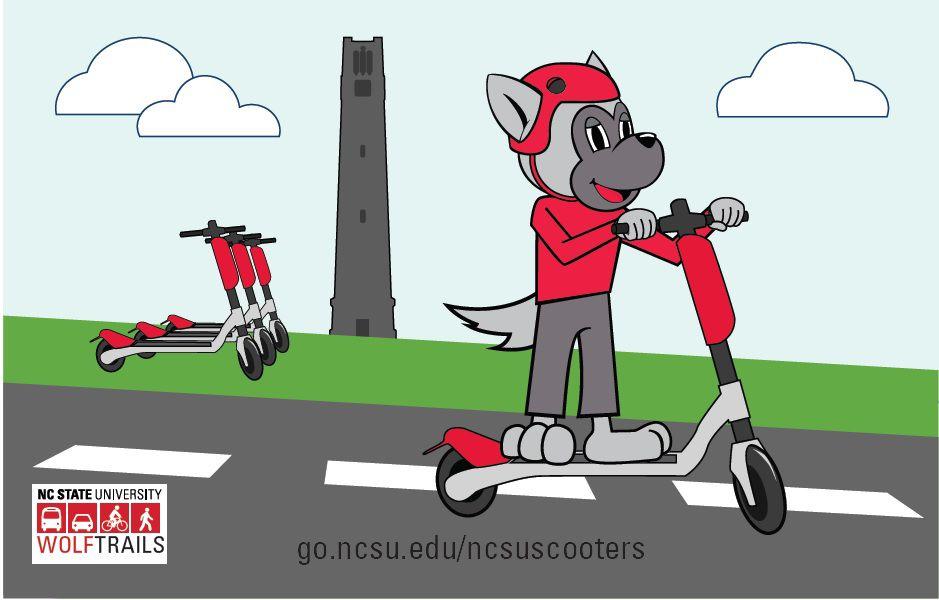NC State’s Student Health Center has seen an increase in the number of LimeBike and Bird scooter-related injuries since their introduction to campus.
Though these injuries have been relatively minor so far, ranging from bruises to sprains, the Student Health Center has been treating multiple injuries regularly relating to the scooters.
“We’re seeing quite a few [injuries]… about anywhere from five to ten injuries per week,” said Dr. Julie Casani, director and medical director of the Student Health Center.
This has caused some concern among faculty across campus regarding the possibility of more major injuries being in the near future if riders’ behavior doesn’t change.
“The problem with these injuries is that they’re fairly significant,” Casani said. “We haven’t had any major orthopedic injuries that we know of, but we’ve seen a couple of head injuries and we’ve seen people have pretty significant bruises and abrasions.”
Injuries such as concussions, while they have not yet occurred, are a major concern for the Student Health Center because of their recovery period and the impact they can have on students if not treated properly.
“While we might not be seeing a lot of concussions yet, I worry about concussions because they can be pretty significant,” Casani said.
While the injuries being seen at NC State’s Student Health Center have been minor, this does not mean students have not had more serious injuries that they chose to have checked elsewhere.
The possibility of the scooters causing serious injuries, such as a concussion, has moved both NC State’s Department of Transportation and the Student Health Center to encourage students to practice safer riding habits.
Sarah Williams, NC State Transportation’s Transportation Demand Management (TDM) Program Manager, explained the rules scooter riders should be following.
These NC State-specific rules include: wearing a helmet at all times, riding the scooters on roads and not sidewalks, getting off the scooters in dismount zones like the Brickyard and Greenways, as well as making sure to have a valid driver’s license before operating a scooter.
While riders agree to following these policies and those similar to them in the creation of their accounts as well as by signing the user agreements required by both scooter companies, Williams said that many of these rules are regularly broken by students on campus.
“The program itself has been successful in that students really wanted to see a scooter program on campus and it’s being utilized, but we aren’t really seeing compliance with the rules that [have been] put in place for the scooter program,” Williams said.
Williams expanded on how students riding scooters on sidewalks can actually more be dangerous to both users and pedestrians on campus.
“A lot of [the scooters] are being ridden on the sidewalks and they are supposed to be ridden on the road,” Williams said. “I know a lot of people feel safer on the sidewalks, but they’re actually less safe because of the brick.”
Both the Student Health Center and NC State Transportation encourage students to wear helmets, claiming this is one of the easiest ways to prevent major injuries.
“I think people underestimate the speed and people underestimate the skill [required to ride a scooter],” Casani said. “It’s easy to cut in and out of pedestrians and cars with the scooters- a lot easier than on a bicycle.”
The departments, in response to their shared desire to keep students safe, have decided to create an event in partnership with the NCSU Police Department and LimeBike to promote the safe usage of both the scooters and the bikes.
This event aims to mainly educate the student body about the rules around riding these two-wheeled vehicles and about the hidden dangers of riding them, and it will also include prizes and giveaways.
“We’re not anti-scooter, it’s a great alternative transportation,” Casani said. “We just want people to be safe.”
Information about the upcoming safety event will be announced soon, see the Student Health Center and NC State Transportation websites for updates.








